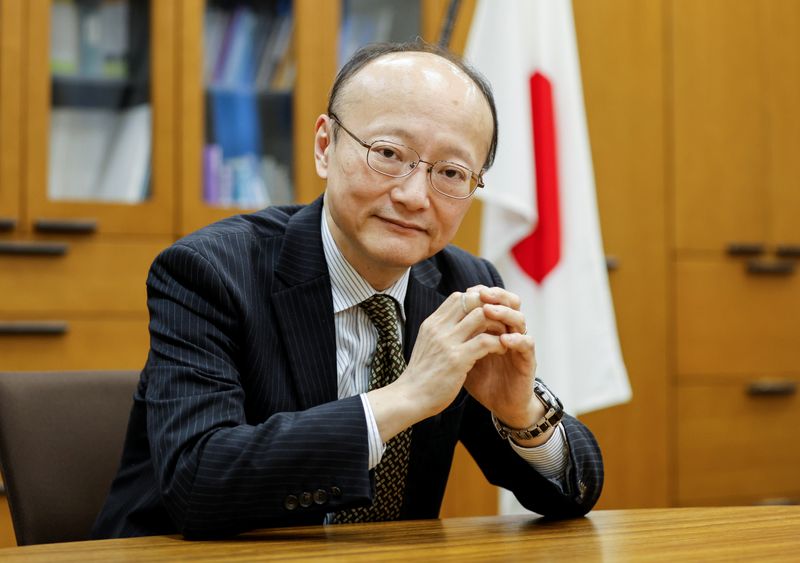
By Tetsushi Kajimoto and Makiko Yamazaki
TOKYO (Reuters) – Japan will act appropriately towards extra actions on the international change market, former forex chief Masato Kanda instructed Reuters, issuing a warning because the nation continues to really feel ache from a weaker yen.
Kanda, now a particular adviser to Prime Minister Shigeru Ishiba and the finance ministry, mentioned in an interview that forex market volatility had elevated reflecting current modifications in financial insurance policies and political conditions in main nations.
“There isn’t any change to our stance that we might want to reply appropriately to extra actions on the forex market as extreme international change volatility is undesirable,” he mentioned.
Kanda’s warning got here because the Japanese forex weakened to a three-month low of close to 155 to the greenback, edging nearer to the 160 threshold that merchants see because the authorities’ line within the sand.
Throughout his three-year tenure as vice finance minister for worldwide affairs, Kanda carried out the primary yen-buying intervention for twenty-four years in 2022 and led the most important yen-buying intervention on document this yr.
He stepped down on the finish of July this yr and is poised to grow to be the following head of the Asian Improvement Financial institution.
Japan’s commerce now not generates a surplus as a consequence of a surge in the price of power imports and a rise in offshore manufacturing, decreasing the weak yen’s optimistic affect on exports.
“We’re observing a state of affairs once more the place a weaker yen pushes up import prices and inflict ache on strange individuals’s lives,” mentioned Kanda.
In the meantime, he mentioned, the falling yen now not prompts export-oriented firms to spice up exports as they do not search to extend market share with value reductions and as an alternative shift manufacturing overseas.
“All in all, there are extra individuals who say the weak yen is extra painful,” he mentioned.

Kanda mentioned that, whereas short-term actions are vastly pushed by hypothesis, the one resolution to stem the yen’s weak point in long term is to strengthen the financial system via structural reforms.
“The weak yen primarily means an outflow of wealth such because it will increase expenditure for power imports,” he mentioned.